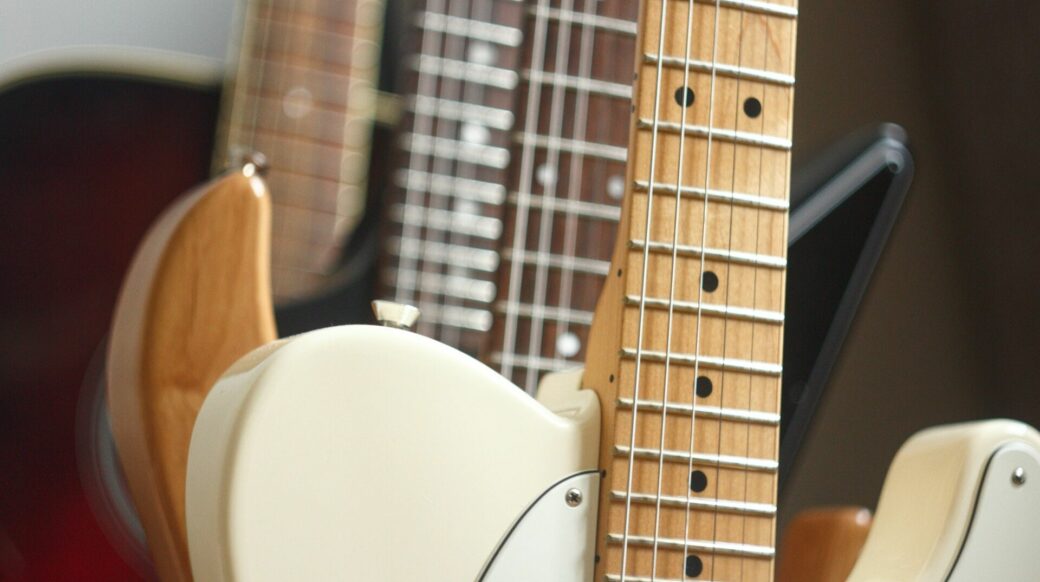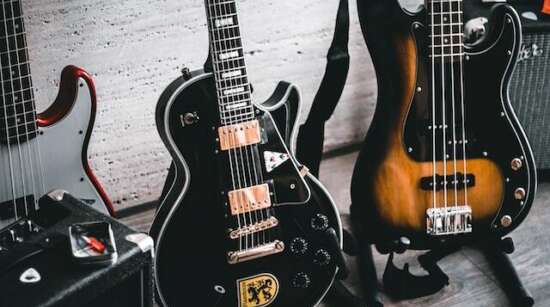Striking a Chord with An Influential Audience
Guitar makers (and really any brand that wants to stay relevant in today’s consumer-driven marketplace) needs to understand what values the NAM holds dear to gain their trust as loyal customers. How do they feel about the environment? Sustainability? Authenticity? Community? Those that don’t learn to adapt to how this influential group sees the world and express how they align with their views through their brand messaging will quickly be left in the dust.
Unlike previous generations, the NAM chooses to make purchases based on much deeper convictions than price alone. They value a brand’s place in the world. For instance, do they take a stand for diversity, the environment, worthy causes? Do they value sustainability? They can’t save the planet by themselves, but they can support progressive brands that align with their beliefs.
Some of the biggest players in the electric guitar industry have understood this for years. Others are starting to take note and greening up to stay in the game. Which ones are leaders and who is following their example? Let’s explore:
FENDER
Leading The Way with Sustainable Tonewoods
Fender is one of the biggest users of Rosewood fingerboards and it turns out they are way ahead of the curve when it comes to utilizing alternative tonewoods as vital parts for many of their electric guitar models. Their use of Pau Ferro wood instead of Rosewood for fingerboards raised eyebrows for some of the purists out there, but the results were eventually embraced and even impressive to their core customers.
Trusted reviewers note that the Fender Duo-Sonic Electric Guitar, PF, Surf Green Pau Ferro, looks almost identical to Rosewood and plays just as well. The tonewoods used were a great step in the right direction to attract the NAM with a greener way of doing things. However, Fender’s commitment has gone further than just changing their tonewoods.
Recently, Fender signed on as partners with the Music Wood Coalition, a project of the leading environmental non-profit Greenpeace. This coalition, which is also made up of a half-dozen tonewood suppliers, makes efforts to protect threatened forest habitats and safeguard the future of trees critical in manufacturing instruments of all kinds. Fender has expressed that they are committed to creating guitars that are greener and have made great steps in using sustainable and alternative tonewoods. For those that are just getting started or on a tight budget, they also offer their Squier electric models that uses cheaper, but still sustainable woods.
But perhaps one of Fender’s greatest achievements in the eyes of the NAM is the Fender Play Foundation. Established in Sep. 2019, the Fender Play Foundation is a not-for-profit public charity solely dedicated to increasing access to music education through innovative and sustainable programs that put instruments & learning tools directly in the hands of students & teachers. Learn more about the programs they offer HERE.
GIBSON
Creating Totally Sustainable Guitars
In 1996, Gibson, one of the world’s premier guitar brands, became the first in the industry to make some of its instruments using wood certified as “sustainably harvested” by the non-profit Forest Stewardship Council (FSC). As far back as 2006, roughly 42 percent of the wood purchased by the company for its Gibson USA electric guitars came from FSC-certified sources. Today, Gibson has quietly increased that to nearly 100% percent. Gibson has also signed on as partners with the Music Wood Coalition and has made considerable steps in becoming greener.
The Rainforest Alliance is also playing a huge role in accelerating Gibson’s progress by sending representatives to Guatemala and now Honduras, the music instrument company’s primary sources of certified mahogany, and bringing them into closer relationships with wood suppliers. Members of the Rainforest Alliance team have been training the community and the local sawmills to mill mahogany to Gibson’s particular needs. Pieces that in the past would have been thrown away are now milled for Gibson guitar neck stock, which increases the yield from every mahogany tree.
In addition, the Rainforest Alliance is introducing Gibson to suppliers in Nicaragua, which will start the certification process for those suppliers and open up new sources of high-quality mahogany for Gibson guitars.
From their pricey, but coveted custom Les Paul models to their surprisingly affordable Epiphone series, Gibson has created an entire range of sustainable electric guitars that utilize responsibly harvested tonewoods such as walnut and a richlite fingerboard and bridge which contains materials made from recycled content and pulp derived from responsibly harvested trees. These guitars also utilize a hand rubbed wax finish instead of the toxic nitro finishes that could be hazardous to kids and pets. This is a far greener process that the NAM is sure to appreciate.
“It’s not just a matter of doing the right thing as a corporate citizen of the world,” said Gibson chairman and CEO Henry Juszkiewicz. “It’s good business,” and the ultimate level of quality control “to have Rainforest Alliance representatives there at the birth of the materials that we use in manufacturing. Thanks to the Rainforest Alliance, we can ensure that our materials are optimized not only for Gibson guitars but for the future of our environment, as well.”
MARTIN
Embracing Environmental Stewardship
Martin Guitar is a leader in environmental stewardship and is not only committed to creating some of the best eco-friendly and sustainable guitars on the planet today, but also has implemented a greener workplace for their employees. The brand as a whole invests in scores of sustainable projects around the world including their own Biannual Wood Summit which gathers global environmentalists to discuss sustainability in sourcing raw materials.
Their last summit included representatives from National Resources Canada, the World Resource Institute, the U.S. Department of Agriculture and the Environmental Investigation Agency. And if that isn’t enough to impress the NAM, Martin has proven their commitment to the environment by choosing the Rainforest Alliance as their certifying body to achieve Forest Stewardship Council® (FSC®) Chain-of-Custody certification.
The Martin Ed Sheeran Divide Signature Edition Guitar utilizes FSC Tonewoods. And even more admirable, they are dedicated to sourcing a majority of their tonewoods by actually visiting the plants to ensure their sustainable, FSC certified wood is up to standard. Overall, Martin Guitars state that close to 80 percent of the wood they use has some level of FSC certification when it comes in the door. This is a massive commitment that is right in line with the values of the NAM. You can read more about their mission HERE.
TAYLOR
Supporting Sustainable Development
Taylor has such a passion for sustainability and eco-friendly guitars that they have actually invested in responsible wood mills in Cameroon and Hawaii. You can read more about their mission HERE. Taylor was given an Award for Corporate Excellence for their work in Cameroon in 2014 which recognized Taylors efforts in supporting sustainable development, respect for human and labor rights, environmental protection, open markets, transparency, and other values that are right in line with the values of the NAM.
Taylor guitars have also started a reforestation initiative in Hawaii and work with Paniolo Tonewoods who help source tonewoods, predominantly Koa, from trees that are dead and dying or utilize residual stands from trees. This means the effect on the planet is minimal, yet you still get a fantastic guitar. Furthermore, Taylor developed an environmentally friendly polyester guitar finish without any volatile organic compounds (VOCs) that are found in nitrocellulose lacquer finishes. They also





